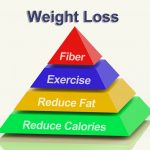Are you looking for the secret to living a long and healthy life? The answer may not be as elusive as you think. Experts agree that there are certain habits and practices that can increase your chances of living a long and fulfilling life.
In fact, studies have shown that genetics only accounts for about 25% of our lifespan, while lifestyle choices make up the remaining 75%. So, what are the keys to longevity?
First on the list is maintaining a healthy diet. Eating a balanced diet rich in fruits, vegetables, whole grains, lean proteins, and healthy fats can help reduce your risk of chronic diseases such as heart disease, diabetes, and cancer.
Exercise is also crucial for longevity. Regular physical activity not only helps maintain a healthy weight but has also been linked to reduced risk of cognitive decline and improved mental health.
Other key factors include getting enough sleep, managing stress levels, staying socially connected, avoiding harmful substances like tobacco and excessive alcohol consumption, and having a sense of purpose or meaning in life.
By incorporating these habits into your daily routine, you may be able to increase your chances of living a long and healthy life.
Maintaining A Healthy Diet
 As we age, our bodies require more care and attention to maintain good health. One of the keys to longevity is maintaining a healthy diet that provides all the necessary nutrients for optimal bodily function.
As we age, our bodies require more care and attention to maintain good health. One of the keys to longevity is maintaining a healthy diet that provides all the necessary nutrients for optimal bodily function.
Meal planning is an essential part of this process, as it ensures that you are consuming a balanced diet with a variety of nutrient-dense foods. When planning your meals, it’s important to include plenty of fruits and vegetables, lean proteins, whole grains, and healthy fats. These foods provide essential vitamins, minerals, and other nutrients that support healthy aging.
Avoid processed and packaged foods high in sugar, salt, and unhealthy fats as much as possible. Nutrient dense foods are those that provide a high amount of nutrition relative to their calorie content. Examples include leafy greens like kale and spinach, berries such as blueberries and raspberries, oily fish like salmon and mackerel, nuts and seeds like walnuts and chia seeds, and whole grains like quinoa and brown rice.
Incorporating these types of foods into your diet can help reduce the risk of chronic diseases such as heart disease, diabetes, and certain cancers. By making small changes to your eating habits over time, you can improve your overall health and increase your chances of living a long life.
Remember to be patient with yourself during this process – developing healthy habits takes time but is worth the effort in the end.
Regular Exercise
Regular Exercise is one of the seven keys to longevity. Exercise routines vary from person to person depending on their age, health status, and fitness goals. It is essential to create an exercise plan that suits your lifestyle and preferences. The goal should be to incorporate at least 150 minutes of moderate-intensity aerobic activity or 75 minutes of vigorous-intensity aerobic activity every week.
When it comes to fitness equipment choices, there are endless options available in the market. Choosing the right equipment can help you achieve your fitness goals effectively. A few examples of popular fitness equipment include treadmills, ellipticals, stationary bikes, rowing machines, and strength training machines. It is crucial to pick equipment that you enjoy using and that fits your budget.
It is also important to note that exercise does not necessarily mean hitting the gym or using fancy equipment. Simple activities such as walking, dancing, swimming, or gardening can also provide immense health benefits. The key is to find an activity that you enjoy doing and incorporate it into your daily routine.
Regular exercise has numerous proven health benefits such as improved cardiovascular health, weight management, reduced stress levels, increased energy levels, and better sleep quality. Therefore incorporating physical activity into your daily routine can improve your overall well-being while promoting longevity.
Getting Enough Sleep
Sleep is an essential part of a healthy lifestyle, and it plays a crucial role in maintaining longevity. However, many people tend to overlook the importance of getting adequate sleep. Poor sleep hygiene can lead to various health problems, such as mood disorders, obesity, and heart disease. Therefore, it is crucial to understand how to optimize your sleep patterns.
One way to improve your sleep quality is by practicing good sleep hygiene. This involves developing habits that promote a restful night’s sleep. For instance, avoiding caffeine and alcohol before bedtime, establishing a regular bedtime routine, and creating a comfortable sleep environment can help you fall asleep faster and stay asleep longer.
Another factor that influences your sleep quality is your circadian rhythms. These are natural biological processes that regulate your body’s internal clock and dictate when you should feel awake or sleepy. Disruption of this rhythm due to shift work or jet lag can cause insomnia and other sleep disorders.
To optimize your circadian rhythms and improve the quality of your sleep, it’s essential to maintain consistent wake-up times each day. Additionally, exposing yourself to natural light during the day and minimizing exposure at night can help regulate your body’s internal clock.
To sum up, getting enough high-quality sleep is vital for longevity. By practicing good sleep hygiene habits and optimizing your circadian rhythms, you can promote better overall health outcomes.
Remember that adequate restful nights’ sleeps are not only necessary for our mental well-being but also contribute significantly towards our physical fitness which eventually leads us towards longevity.
Here are four tips on improving the quality of our sleep;
- Limit caffeine intake especially late in the afternoon.
- Try sticking with fixed wake-up times even on weekends.
- Create an environment conducive to sleeping; dim lights or noise-canceling headphones if needed.
- Make sure you get enough sunlight during the day as it helps regulate our body’s internal clock – try going outside for 10-15 minutes.
Social Connection And Support
Staying connected with others is one of the essential keys to longevity. Social connection and support play a vital role in maintaining physical and mental well-being. People who have strong social connections tend to live longer, healthier lives than those who are isolated or lonely.
Developing and nurturing your relationships with family, friends, and community members can contribute to a happier, healthier life. Volunteering opportunities are an excellent way to build social connections while giving back to the community. Volunteering allows you to meet new people who share similar interests, values and may lead to long-lasting friendships. It also provides a sense of purpose and fulfillment that contributes positively towards mental health.
Community engagement events offer an ideal opportunity to connect with other members of your community while supporting local causes. Participating in community events such as charity walks, food drives, or cultural celebrations can be both fun and rewarding. These events allow you to meet new people and create meaningful connections while making a positive impact on society.
Strengthening social connections is crucial for overall health and longevity. Making time for friends and family, participating in volunteering opportunities or engaging in community events can help foster positive relationships that contribute positively towards mental health, happiness, and longevity.
Finding Purpose And Meaning In Life
Imagine a sailor without a compass, lost in the vast and open sea. Without direction, the sailor aimlessly wanders, unsure of where to go or what to do. Similarly, a life without purpose and meaning can feel like being lost at sea. It is crucial for our well-being to have a sense of direction and purpose in our lives.
One way to find purpose is by cultivating hobbies and interests that bring us joy. Engaging in activities that we are passionate about helps us tap into our creativity and self-expression. Whether it’s painting, writing, or gardening, hobbies allow us to explore our talents and enhance our skills while also providing an outlet for relaxation.
Another essential aspect of finding purpose is by cultivating inner peace. Meditation, yoga, or simply taking time for self-reflection can help us understand ourselves better and gain clarity on our goals and aspirations.
When we are at peace within ourselves, we can approach life with positivity and mindfulness. Discovering a sense of purpose and meaning is vital for longevity. By prioritizing these aspects of life, we can create a meaningful existence full of happiness and contentment.
Frequently Asked Questions
What Is The Best Type Of Diet To Follow For Longevity?
For those looking to increase their lifespan, following a plant-based or Mediterranean diet may be the answer. These diets are rich in fruits, vegetables, whole grains, and healthy fats like olive oil. Studies have shown that individuals who follow a plant-based diet have lower risks of heart disease, type 2 diabetes, and certain cancers.
Meanwhile, the Mediterranean diet has been linked to improved brain function and reduced inflammation. Both diets prioritize nutrient-dense foods while limiting processed foods and added sugars.
While there is no one-size-fits-all approach to nutrition for longevity, incorporating more plant-based or Mediterranean-style meals into your diet may have significant health benefits.
How Much Exercise Should I Do Per Day To Increase My Lifespan?
How much exercise do you need per day to increase your lifespan? It’s a question that many of us are asking these days.
The answer, however, is not as simple as it may seem. High intensity vs low intensity exercise has been a topic of debate for years now. While some people believe that high intensity workouts are the way to go, others argue that low intensity workouts are more effective.
So how do you know which one to choose? Well, according to health experts, it all depends on your fitness level and goals. For most people, 30 minutes of moderate-intensity exercise per day is recommended for optimal health benefits.
However, if you’re looking to boost your longevity even further, increasing the duration or intensity of your workouts may be necessary. As with anything related to fitness and health, it’s important to consult with a professional before making any major changes to your routine.
Can Sleeping Too Much Be Harmful To My Health?
Sleeping habits can greatly impact our overall health. While getting enough sleep is important, it’s also possible to sleep too much.
Studies have shown that excessive sleep can increase the risk of various health problems such as obesity, diabetes, and heart disease. It’s recommended that adults aim for 7-8 hours of sleep per night, but it’s important to listen to your body and find the right amount of sleep that works for you.
Maintaining good sleeping habits can help decrease the risk of these health risks and improve overall well-being.
What Can I Do If I Don’t Have A Strong Social Support System?
Life is like a garden, it needs nourishment to thrive. Just like plants need water and sunlight, humans need social support to lead a fulfilling life.
Unfortunately, not everyone has access to this necessary nourishment. Whether due to circumstances or personal choice, some individuals find themselves lacking in the social support department.
But fear not, there are ways to build a strong network of connections. Volunteering and hobbies can introduce you to like-minded individuals who share your passions. Therapy and online communities offer a safe space to connect with others and work through any issues you may be facing.
Coping with loneliness can also be achieved through mindfulness practices and self-care activities like exercise or meditation. Remember, just as a garden needs care and attention, so too does our social support system require ongoing effort in order to flourish.
How Can I Find My Purpose In Life If I Haven’t Discovered It Yet?
If you’re feeling lost and unsure about your purpose in life, there are a few things you can do to help guide yourself in the right direction.
Mindful practices, such as meditation or journaling, can help you tune into your inner self and uncover what truly brings you joy and fulfillment.
Additionally, career exploration can be a helpful tool in discovering your purpose.
Try volunteering or interning in different fields that interest you to gain hands-on experience and see if it aligns with your passions.
Remember, finding your purpose is a journey, not a destination – keep an open mind and trust the process.
Conclusion
In conclusion, achieving longevity requires a holistic approach to health and wellbeing. Following a balanced diet that is rich in antioxidants and nutrients, along with regular exercise, can help you maintain a healthy weight and reduce the risk of chronic diseases.
However, it’s essential to avoid excessive sleep as it can lead to health problems such as obesity and depression.
Having a strong social support system is also crucial for longevity. If you don’t have one, consider joining groups or clubs that interest you.
Finally, finding your purpose in life can give you a sense of fulfillment and joy, making it easier to cope with stressors that come your way. Ask yourself this: what steps will I take today to start living my best life?









